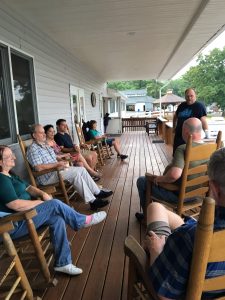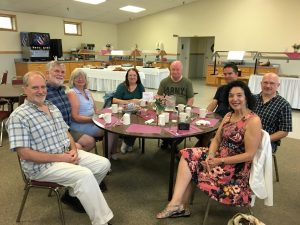 2 Timothy 2:22
2 Timothy 2:22
Flee the evil desires of youth and pursue righteousness, faith, love and peace, along with those who call on the Lord out of a pure heart (NIV).
The Lord directs us to grow up our desires among the fellowship of his followers. Notice the words along with those. We must eliminate the “lone ranger” approach to growth in grace. When Christ saved us, the Spirit put us into the Father’s family and Christ’s spiritual body. God wants us to walk the walk of faith with other followers of Jesus. Consider the many “one another” commands and exhortations in the New Testament Scriptures. (See a previous post on that subject.) Certainly, we need to walk with God personally, but that walk must include our spiritual partnership with other believers. Fellowship with other believers will helps us mature, because of what believers are by God’s powerful grace.
Observe how believers are described here. We are focused on the Lord; we are those who call upon the Lord. We are people known for prayer. A Christian prays. Two aspects of prayer to consider:
- We worship God; we recognize his worthiness. God uses our words of praise and of confession of the benefits of walking in his ways and teaching about God’s significance to stir each other to live in conformity with his reality. There is something encouraging and convicting about hearing another Christian say in a small group, “The other day I experienced this in my walk with God.” We spur each other on when we share how the living God is presently at work among us.
- We seek help from God; we make bold requests to our Father in heaven (cf. Luke 18:7). God uses the heart cries of others to draw our hearts together to him. In this day when local church prayer meetings have disappeared, we ought to join together in prayer in every small group meeting.
Believers are a pure people; we call on the Lord out of a pure heart. Our hearts were purified by faith in Christ and his saving work. See how the following verses make that plain.
- He did not discriminate between us and them, for he purified their hearts by faith (Acts 15:9 NIV)
- Who gave himself for us to redeem us from all wickedness and to purify for himself a people that are his very own, eager to do what is good (Titus 2:14 NIV)
- How much more, then, will the blood of Christ, who through the eternal Spirit offered himself unblemished to God, cleanse our consciences from acts that lead to death, so that we may serve the living God! (Hebrews 9:14 NIV)
We strive to maintain purity, because moral filthiness is disgusting to us, who form the pure bride of Christ (Ephesians 5:27). This begins with a continuing reliance on Christ and his finished work. If we walk in the light as he himself is in the light, we have fellowship with one another, and the blood of Jesus his Son cleanses us from all sin. If we say, “We have no sin,” we are deceiving ourselves, and the truth is not in us. If we confess our sins, he is faithful and righteous to forgive us our sins and to cleanse us from all unrighteousness (1 John 1:7-9 CSB). The reality of Christ and his work in the gospel provide practical motivation to keep a pure heart. Consider Paul’s example: I have the same hope in God that these men have, that he will raise both the righteous and the unrighteous. Because of this, I always try to maintain a clear conscience before God and all people (Acts 24:16 NLT). Are we maintaining pure hearts together?
Grace and peace, David

 Romans 12:3
Romans 12:3 When the Lord gives us the new birth from above, he calls us individually to himself. However, he does not save us to be individuals, but to belong to his people, his new family. In this way, our lives are forever intertwined, not only with the Triune God, but with each other!
When the Lord gives us the new birth from above, he calls us individually to himself. However, he does not save us to be individuals, but to belong to his people, his new family. In this way, our lives are forever intertwined, not only with the Triune God, but with each other! 1 Thessalonians 5:11
1 Thessalonians 5:11 Hebrews 10:25
Hebrews 10:25 Hebrews 10:24
Hebrews 10:24
